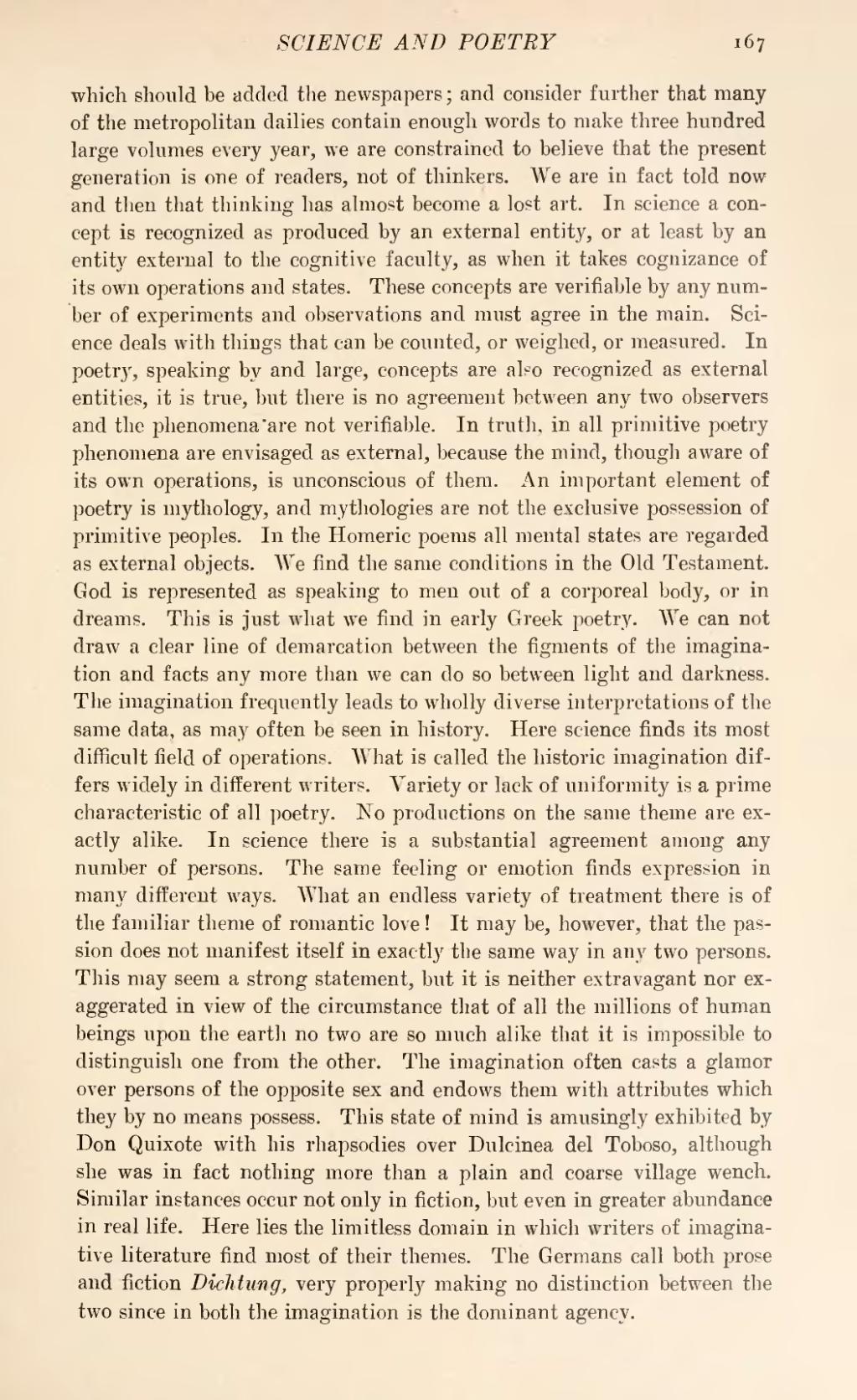which should be added the newspapers; and consider further that many of the metropolitan dailies contain enough words to make three hundred large volumes every year, we are constrained to believe that the present generation is one of readers, not of thinkers. We are in fact told now and then that thinking has almost become a lost art. In science a concept is recognized as produced by an external entity, or at least by an entity external to the cognitive faculty, as when it takes cognizance of its own operations and states. These concepts are verifiable by any number of experiments and observations and must agree in the main. Science deals with things that can be counted, or weighed, or measured. In poetry, speaking by and large, concepts are also recognized as external entities, it is true, but there is no agreement between any two observers and the phenomena 'are not verifiable. In truth, in all primitive poetry phenomena are envisaged as external, because the mind, though aware of its own operations, is unconscious of them. An important element of poetry is mythology, and mythologies are not the exclusive possession of primitive peoples. In the Homeric poems all mental states are regarded as external objects. We find the same conditions in the Old Testament. God is represented as speaking to men out of a corporeal body, or in dreams. This is just what we find in early Greek poetry. We can not draw a clear line of demarcation between the figments of the imagination and facts any more than we can do so between light and darkness. The imagination frequently leads to wholly diverse interpretations of the same data, as may often be seen in history. Here science finds its most difficult field of operations. What is called the historic imagination differs widely in different writers. Variety or lack of uniformity is a prime characteristic of all poetry. No productions on the same theme are exactly alike. In science there is a substantial agreement among any number of persons. The same feeling or emotion finds expression in many different ways. What an endless variety of treatment there is of the familiar theme of romantic love! It may be, however, that the passion does not manifest itself in exactly the same way in any two persons. This may seem a strong statement, but it is neither extravagant nor exaggerated in view of the circumstance that of all the millions of human beings upon the earth no two are so much alike that it is impossible to distinguish one from the other. The imagination often casts a glamor over persons of the opposite sex and endows them with attributes which they by no means possess. This state of mind is amusingly exhibited by Don Quixote with his rhapsodies over Dulcinea del Toboso, although she was in fact nothing more than a plain and coarse village wench. Similar instances occur not only in fiction, but even in greater abundance in real life. Here lies the limitless domain in which writers of imaginative literature find most of their themes. The Germans call both prose and fiction Dichtung, very properly making no distinction between the two since in both the imagination is the dominant agency.
Page:Popular Science Monthly Volume 84.djvu/171
Appearance

